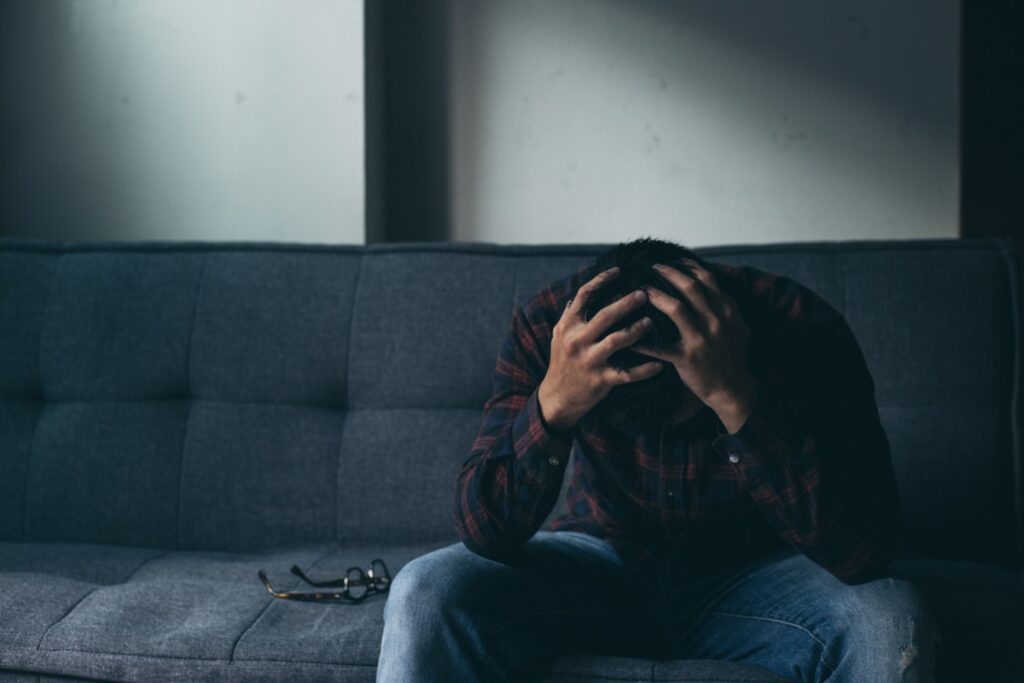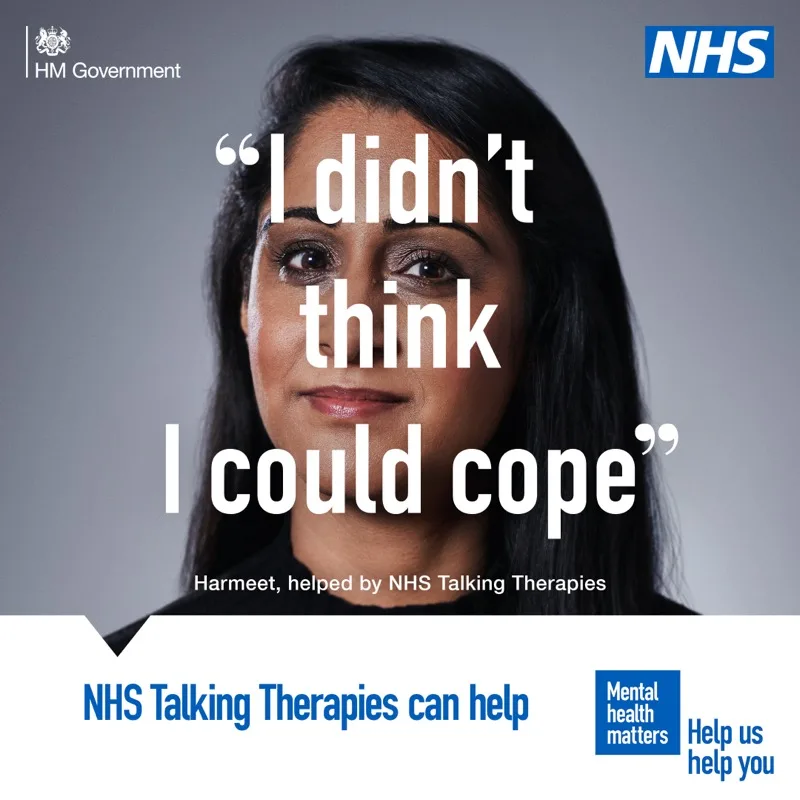
With 3 in 5 South Asians worried about their mental health, new poll shows that seeking professional support can make a difference
A new poll by NHS England has found that over 3 in 5 (64%) South Asians have felt concerned about their mental health in the last year.
In fact, over 2 in 5 (42%) of those asked, said that they have experienced depression, and just under 3 in 10 (29%) have experienced generalised anxiety disorder. However, the responses also reveal that just under two thirds (65%) of South Asians who have accessed professional help for an anxiety disorder or depression said they saw an improvement in their mental health.
The NHS is encouraging anyone struggling with feelings of depression, or anxiety such as excessive worry, panic attacks, social anxiety, post-traumatic stress, or obsessions and compulsions, to seek help through NHS Talking Therapies services.
These are effective, confidential and free treatments delivered by trained clinicians, online, on the phone, or in person. Anyone struggling with feelings of depression or anxiety can seek help through an NHS Talking Therapies service and get back on track.
Taking care of your mental health is a vital part of overall health, but it is something that can sometimes be a struggle to talk about with family and friends – and this can be a particular issue for men in the community.
Talking Therapies can offer the opportunity to discuss your difficulties with someone who you don’t know, providing a welcome outlet for many people.
Ummar Sadique, Cognitive Behavioural Therapist, says: “As an NHS accredited Talking Therapist, I notice that men from the community are far less likely to seek help from therapy than women are. I think it’s an ingrained part of our culture, but it’s something I’d really like to see changing.

“With Talking Therapies you have the opportunity to talk to someone completely independent, and in confidence, so you don’t have to be embarrassed about opening up. There are more people using the service than you may think. As a community we need to start seeing mental health as an essential part of our overall health. You’d go to see a doctor or a specialist if you had stomach pains, for example, and it shouldn’t be any different if your mental health is suffering.”
Following some traumatic experiences in her life, Harmeet referred herself for cognitive behavioural therapy (CBT) through NHS Talking Therapies. She has since gone back to the service several times and regularly uses the methods that she has learned from it, to help her with day-to-day challenges.

Harmeet says: “Talking Therapies helped pull me out of the dark hole I found myself in.
“By reaching out for help, especially to someone who is independent and totally non-judgmental, I was able to share what felt heavy and release the weight I had been carrying. I can’t shout about it enough – my mental health is better than ever before.”
When asked in the survey, over half (56%) of South Asians did not know that they could refer themselves to NHS Talking Therapies online to access treatment for anxiety and depression
You don’t need to have a diagnosed mental health problem to refer yourself to an NHS Talking Therapies service, and you can choose whether to refer yourself online, or to ask your GP to refer you. For those whose first language is not English, talking therapies can be delivered through multi-lingual therapists or through confidential interpreters. The service is available for anyone over 18 who is registered with a GP.
Kiran Bal, HICBT Therapist, says: “If you think you may be struggling with depression or anxiety, NHS Talking Therapies may be able to help, it’s a free and confidential service. Talking therapies is tailored to your specific needs, and you can either refer yourself to the service or discuss it with your GP first – whichever feels more comfortable for you.
“As therapists, we are specifically trained in offering evidence-based treatment to support people with their mental health difficulties, and I have seen first-hand the benefits of this service for many of my patients.”
NHS Talking Therapies can help provide support and treatment for common mental health problems, such as:
- feeling anxious
- feeling low and hopeless
- having panic attacks
- finding it hard to cope with work, life or relationships
- struggling with flashbacks or nightmares about upsetting events from your past
- feeling stressed
- worrying a lot
- obsessive thoughts or behaviours
- fear of social situations
- being afraid of things, such as spiders, flying or heights (phobias)
Your GP can refer you for NHS Talking Therapies, or you can refer yourself online at nhs.uk/talk.















